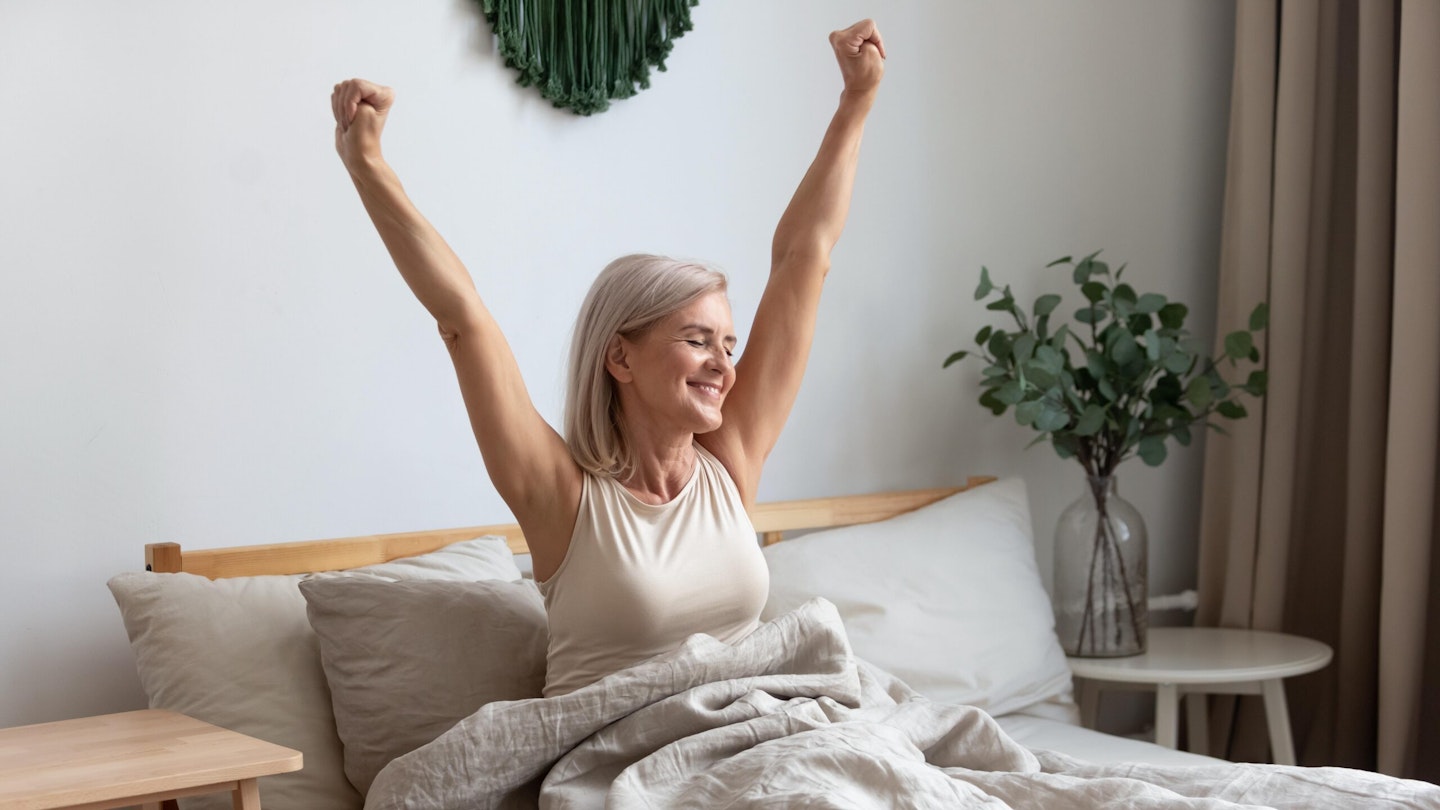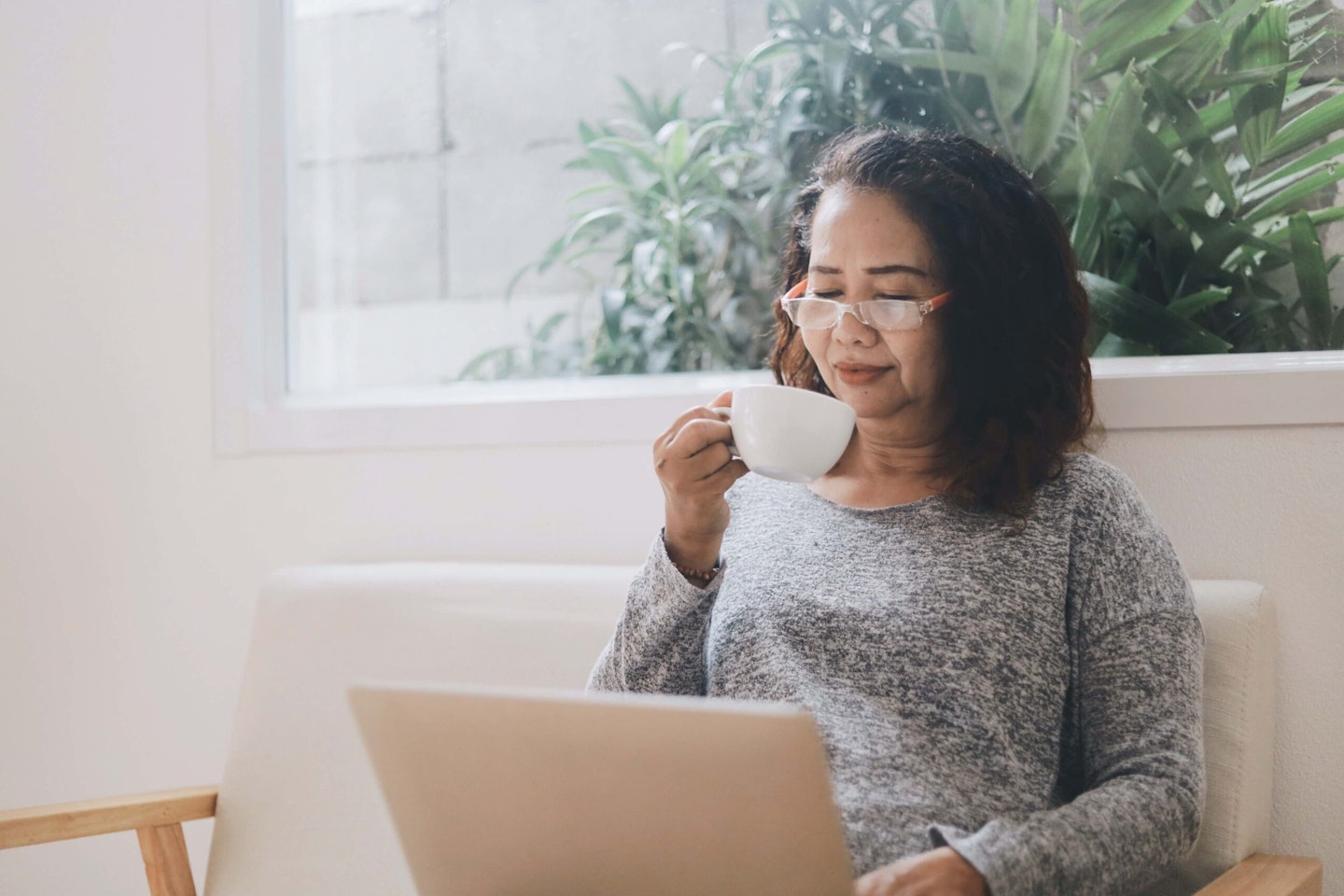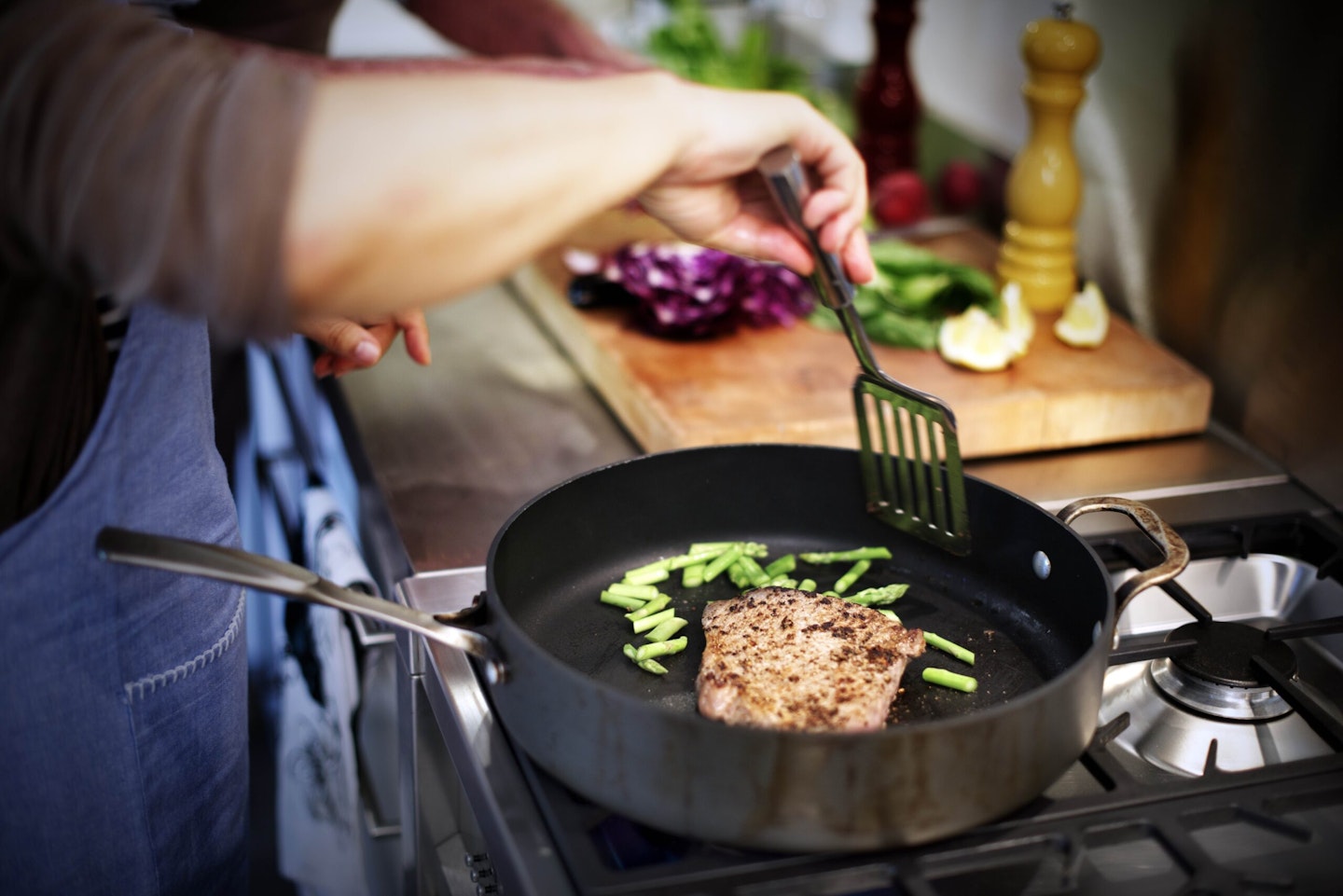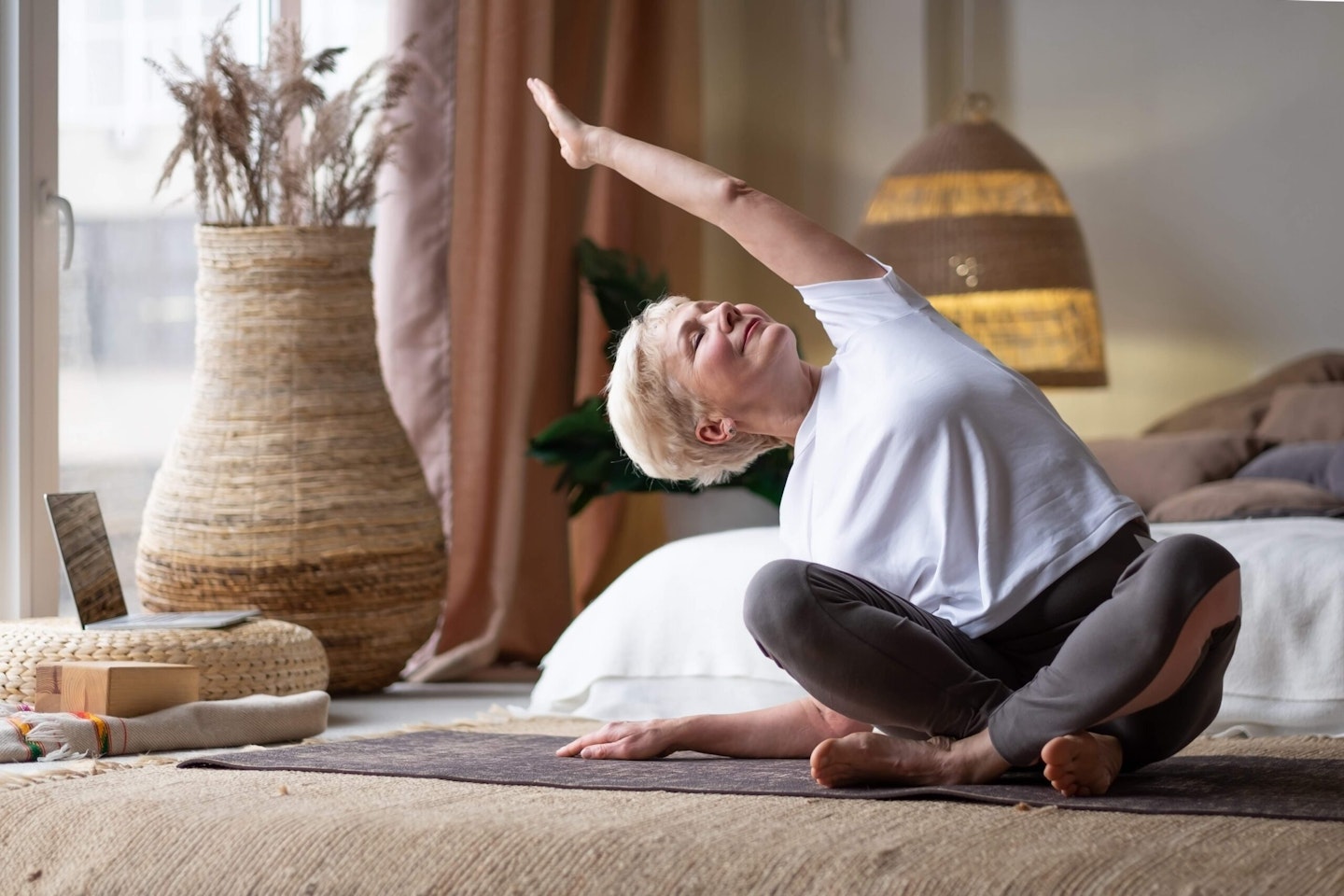Struggling to get to sleep or find yourself waking up in the early hours and not able to able to drop back off? If so, you're not alone. According to a recent survey by Age UK almost two in five (39%) of people aged 50 admitted to not sleeping well. Lack of good quality sleep can have a huge impact on your both your mental and physical health. The good news is that there are things you can do can vastly improve your sleeping patterns. We spoke to Dr Neil Stanley a sleep expert who has studied sleep for the past 43 years and Anthea McCourtie is a registered nutritionist, personal trainer and yoga instructor.
We asked our two experts to tell us exactly how to prepare for a good night’s sleep, starting from the second you open your eyes in the morning.
First thing: Set your body clock
By setting your alarm for the same time every day, your body clock will soon take over. Sleep expert Dr Neil Stanley explains, “If you’re doing cognitive behavioural therapy (CBT) for insomnia, the first thing they’ll do is fix your wake up. But you have to do it 365 days a year. It’s not completely rigid, plus or minus up to one hour is fine. The reason for this is that your body and brain start to wake up about 90 minutes before you actually wake, so if your body knows what time you wake up, it knows what time to get ready for.” Dr Neil says you can train your brain to wake up naturally at your desired time quite quickly. “Set your alarm for the time you want to wake up, do it consistently and it will only take about two or three weeks.”

What time should we be setting our alarm for? “It is individual,” Dr Neil explains. “There are morning people and evening people, with 50 per cent of us somewhere in between. Morning people can bounce out of bed at 5am and other people might not want to go to bed until midnight, so may not get up until 9am. Pick a time that works for you and your routine.”
Early morning: Get out into the daylight
Dr Neil says it’s important to get some light as soon as possible after waking to kickstart your circadian rhythm (your body’s 24-hour internal clock). He explains, “Daylight is the signal that tells your body you are awake. It’s important to get light as soon after you wake up as possible. On those dreary days, you can get the same effect by switching on the artificial lights in the house. You can sit by the window for five minutes if you want to, although to get the added benefit of soaking up Vitamin D, you need to get outdoors.”
Midday onwards: Stop drinking coffee
Studies have shown that caffeine consumption reduces total sleep time by 45 minutes and sleep efficiency by seven per cent. Dr Neil says, “For both alcohol and caffeine, there are differences in sensitivity depending on the person. We all know someone who can drink two double espressos and go straight to sleep! Other people should be stopping drinking caffeine around midday. It is something you need to work out for yourself. If you find yourself struggling to sleep, experiment with making your last caffeinated drink earlier.”

During the day: Exercise
Dr Neil says that, while there isn’t any conclusive data to prove we shouldn’t exercise before bedtime, he suggests getting any workouts done during the day. “Exercising before bed might bring up your body temperature which can affect your sleep. Plus, exercising outdoors during the day is good as it reinforces that wake message. Exercising in the evening in winter when it is dark is probably not the best idea for bringing on sleep.”
Personal trainer Anthea McCourtie adds that you can enjoy your activity at any point during daylight hours. She says, “The most important thing is to find a time that can fit into your schedule, and a time where you can be consistent.”
But Dr Neil also says that, while exercise is crucial for overall health and wellbeing, we don’t need to be tiring ourselves out during the day.
He adds, “There is a difference between being tired and feeling sleepy. Tiring yourself out makes no difference, you can be physically exhausted but not able to sleep. Why? Because you haven’t got a quiet mind, which is the key to going to sleep.”
Early evening: Eat dinner
Dr Neil advises eating your main meal three to four hours before bedtime.
He explains, “Sleep is a time when the body doesn’t want to do anything bar repair and recuperate. So giving yourself a big dinner to digest means your body has to do work.”
Though he adds that you can include a bedtime snack if you need to. It doesn’t matter what you eat, but Dr Neil suggests something plain, “Toast or a couple of Digestive biscuits works. There is no evidence to suggest any foods have a particular effect on sleep; the same goes for milky drinks. That said, milky drinks can be like a hug in a mug, so have them if it helps you wind down.”

Discuss sleeping separately
If you feel it might help you, Dr Neil suggests discussing with your partner the possibility of sleeping in different rooms.
He says, “Much sleep disturbance is caused by your sleeping partner, either moving or making noises. Sleeping apart is one of the biggest changes you can make to improve your sleep.”
That said, the comfort of your partner’s scent can help your sleep. A study from the University of British Columbia found participants who slept with their partner’s shirt containing their scent slept better than those who didn’t.
“So having something comforting will help,” Dr Neil says. “The only problem is, if you don’t have it then you might feel unable to sleep, so be mindful of that.”
Evening: Do some back-stretching yoga
A recent study found that practising Yoga Nidra, which focuses on posture, breathing and muscle control, can improve your sleep.
Anthea McCourtie says there are some specific yoga positions that are helpful to do before bed.
She explains, “Forward folds, such as Paschimottanasana (sit on the floor with your legs straight in front of you, lean forward as far as you can go and hold for three to five rounds of breath – one round is a complete inhale and exhale); or Uttanasana (stand with your legs together, bend down as far as you can go and hold for the same) stretch the muscles in the lower back, which can stimulate the parasympathetic nervous system. This is the rest and digest part of the nervous system – which is involved in relaxation. While holding these poses, allow the mind to focus on the inhale and exhale to enhance the mindful relaxation aspect.”

At bedtime: Stroke your pet
“We sleep by having a quiet mind, so in the evening do whatever helps you relax: reading, meditation or listening to Pink Floyd,” says Dr Neil.
If you’re an animal lover, you could consider sharing your room with a pet. Just over half of us report doing this and there can be upsides, as long as they don’t disturb you.
Dogs have been found to ease nightmares for veterans living with Post-Traumatic Stress Disorder (PTSD), and their presence can help you feel more secure. You don’t have to let them into your bed to feel the benefits – just the act of stroking a pet can reduce your blood pressure and heart rate.
Interacting with your furry friend can also stimulate the production of oxytocin, a feel-good hormone, and pets are known to help alleviate anxiety. Studies suggest that touching them can lower your levels of stress hormone cortisol, calming the mind and helping you feel more restful. In fact, research has even found that people with pets are less likely to take sleep medication.
Annabelle Lee is a Lifestyle Editor at Bauer Media. She specialises in health, wellness and lifestyle celebrity content.
